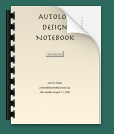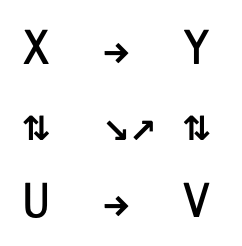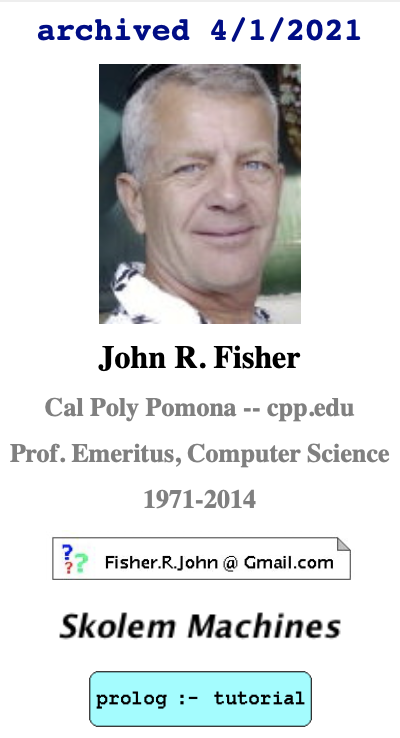
Latest Java implementation ↳
colog14I.jar (made with java version "15.0.1")
Download the jar, double-click on jar to start the colog proof browser GUI.
Read the usage notes under the ??? tab of the proof browser.
Sources:
↳ colog14I.zip
(Unzip, See README file)
An old report (2009) describes the fore-and-aft, fol-to-colog translation idea: ↬
fol2cl.pdf. This version of translation
is implemented by colog14I (FOL tool tab), and some earlier versions.
Various bugs (or difficulties) persist, awaiting new developments.
The colog and FOL parser-generators employed by the prover are
implemented using
ANTLR grammars.
Constructive Coherent Translation
of Propositional Logic,
using fore-and-aft Heyting templates ↬
prop2cl.pdf.
Autolog Project

The
Autolog Design Notebook (ADN) describes language
design and implementation requirements for
Autolog,
an
experimental inference programming system whose implementation
employs a conservative extension of the Skolem Abstract Machine.
The
ADN design elements involve system requirements,
autolog implementation code specifications,
autolog program code test requirements and test results.
The
ADN is frequently updated
(last post 11/22/2023). Recent developments indicate that more
colog14I serial control code needs to be refined and adapted for
AutoLog24.
This involves new
concurrent inference design modifications
and testing. There is some delay in getting these design details correctly integrated.
The overall effort also requires code design for what is called
predicative
forcing for indexical rule literals and rule generated active equality rewrites.
The Autolog code development README page
is
here.
Autolog Equality Inference,
BLAST18, University of Denver
↬
slides.
The slides outline a technique for combining equational reasoning
(modulation), algebraic logic and coherent reasoning.
Lecture Notes, Autolog Meta Programming
To capture unicode symbols,
download and view
.txt with AutoLog editor.
#1 - Autolog MetaLogic
.pdf
.txt
#2 - Autolog Quantifier MetaLogic
.pdf
.txt
#3 - Autolog Type Metalogic
.pdf
.txt
#4 - Autolog Category Metalogic
.pdf
.txt
#5 - Autolog Set Type Metalogic
.pdf
.txt
The lecture notes describe autolog programs
that we would like to compute, along with some
suggestions regarding how they should be computed.
The examples provide use cases for autolog
system code development and testing.
A problem is specified using an autolog program.
The meaning of the program involves the inference trees
that can be generated from the program by a Skolem Machine.
The problem answers are specified by the goal rules
of the autolog program and inference trees support answers.
 about category
ISOTYPES
‐
categories as type universes
about category
ISOTYPES
‐
categories as type universes
11/15/2024 Java IDE
The Java Inference systems (Colog/Autolog) on this page all used a JavApp Interactive
Design Environment (IDE) for Java code design and implementation testing.
Follow the link to read brief outline description of how the latest version
JavApp24 works.
2025 CategoryLogic Lectures

Lecture 1 covariantFunctor logic (example)
Lecture 2 contravariantFunctor logic (example)
Lecture 3 NaturalTransformation logic (exercise/project ...)


 about category
about category



